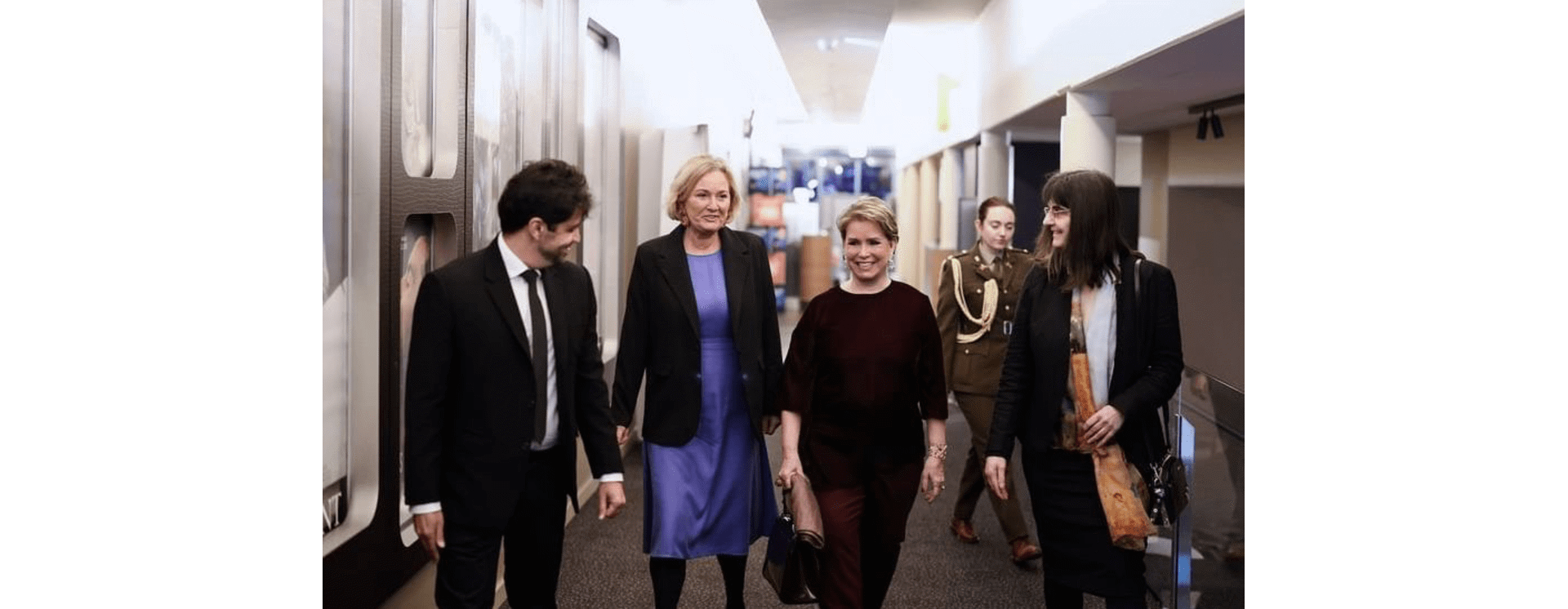
and filmmaker Dheeraj Akolkar last week participated in the film screening of , as part of a joint event of the Luxembourg-based foundation and the UK-based charity .
The film – rooted in extensive research on children born of conflict-related sexual violence (CBCRSV), and co-produced with a group of fifteen young people conceived in the Lord’s Resistance Army and Karamojong conflicts in Northern Uganda – explores stigma, discrimination and other challenges arising from local perceptions of children associated with the former enemy.
The film-screening on 28 February 2024 launched a partnership between Stand Speak Rise Up! and the GRACE, supported and encouraged by HRH of Luxembourg who attended the event. HRH the Grand Duchess, Professor Lee and , jointly raised awareness of the issue of children born of rape in Uganda and more broadly in all war zones. Funds raised in the event will support a peer-to-peer counselling initiative in Northern Uganda, training young people who have in the past been supported by research and impact projects of the University of Birmingham (UoB) and other funders to be counsellors themselves and support other CBCRSV.
The Wound is Where the Light Enters was awarded an AHRC Research in Film award in 2021 and is an example of a sustainable collaboration by the College of Arts and Law with partners elsewhere in the globe. It is currently used in a joint research and impact project initiated by the School of History and Culture (SHaC) Honorary Research Fellow and member of the Ugandan Parliament Dr Eunice Apio, who was awarded a research grant for an investigation of film as an actional learning tool by UoB-led Globel Network Plus .
Play video

‘The Wound is Where the Light Enters’ documentary trailer.
Luxembourg event is one in a range of activities that demonstrates that the UoB is committed to the rights and wellbeing of children born of war. Indeed, last month Professor Lee took part in a series of meetings in Washington D.C., USA, on the invitation of the (ACWPS), discussing the rights and wellbeing of Children Born of Conflict-related Sexual Violence (CBCRSV) with a range of stakeholders from different sectors.
Further talks with the and the included an analysis of the challenges for CBCRSV, but primarily focussed on policy ideas to address those challenges, including: the integration of CBCRSV considerations into gender analysis; awareness-raising of CRSV in transitional justice and international crime policies; development of in-country strategies; considerations of human rights discourses; and integration of CBCRSV in stability operations as part of Disarmament, Demobilization and Reintegration processes.
Conversations at the focussed on the significance of recognising CBCRSV as a ‘missing piece’ in our understanding of the impact of conflict-related sexual violence. The meeting resulted in a commitment from the director of ASWPS, , to integrate work on children born of war into the research programme as a strand in the Institute’s .
Alongside encounters with policy makers and practitioners in the field of social justice, engagement with students also played a key part of the week’s activities. Using the American premiere of at George Washington University as a conversation opener, students and member of the ACWPS took part in an engaging Q&A session with a panel that also included Filmmaker Dheeraj Akolkar, Dr Apio and Ms Yonah Peace Lanyero, a woman conceived in CRSV.
The discussions in Washington relate directly to SHaC’s and the College of Arts and Law’s engagement with policy makers in the UK. The Department of History recently secured a grant to lead on a rapid evidence assessment of research related to CBCRSV. The interdisciplinary work, co-led by and Professor Lee, will directly inform the Foreign, Commonwealth and Development Office’s policies as they relate to their , an initiative that the University has .
